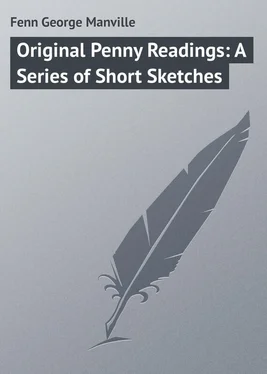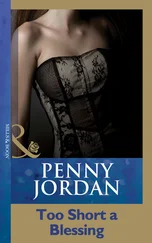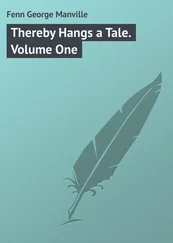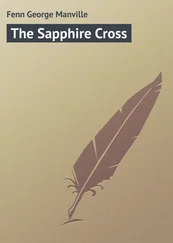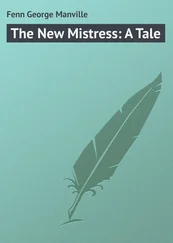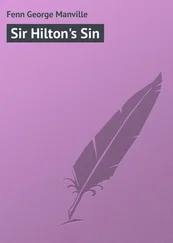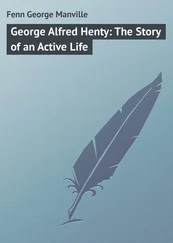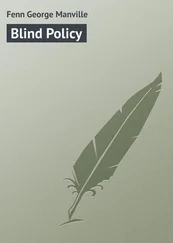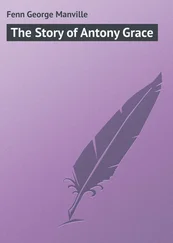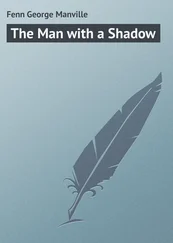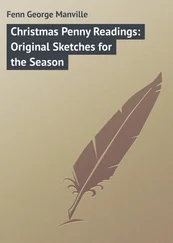George Fenn - Original Penny Readings - A Series of Short Sketches
Здесь есть возможность читать онлайн «George Fenn - Original Penny Readings - A Series of Short Sketches» — ознакомительный отрывок электронной книги совершенно бесплатно, а после прочтения отрывка купить полную версию. В некоторых случаях можно слушать аудио, скачать через торрент в формате fb2 и присутствует краткое содержание. Жанр: foreign_prose, на английском языке. Описание произведения, (предисловие) а так же отзывы посетителей доступны на портале библиотеки ЛибКат.
- Название:Original Penny Readings: A Series of Short Sketches
- Автор:
- Жанр:
- Год:неизвестен
- ISBN:нет данных
- Рейтинг книги:5 / 5. Голосов: 1
-
Избранное:Добавить в избранное
- Отзывы:
-
Ваша оценка:
- 100
- 1
- 2
- 3
- 4
- 5
Original Penny Readings: A Series of Short Sketches: краткое содержание, описание и аннотация
Предлагаем к чтению аннотацию, описание, краткое содержание или предисловие (зависит от того, что написал сам автор книги «Original Penny Readings: A Series of Short Sketches»). Если вы не нашли необходимую информацию о книге — напишите в комментариях, мы постараемся отыскать её.
Original Penny Readings: A Series of Short Sketches — читать онлайн ознакомительный отрывок
Ниже представлен текст книги, разбитый по страницам. Система сохранения места последней прочитанной страницы, позволяет с удобством читать онлайн бесплатно книгу «Original Penny Readings: A Series of Short Sketches», без необходимости каждый раз заново искать на чём Вы остановились. Поставьте закладку, и сможете в любой момент перейти на страницу, на которой закончили чтение.
Интервал:
Закладка:
Plucky young chap, he was; but the sea was too much for him; and, Lord, sir, you’d be surprised how many the sea takes every year.
Chapter Three.
K9 – A Queer Dog
Ideas for new sketches are like mushrooms in the London fields – scarce articles, and difficult to find unless you force them in a bed. But then the forced article will not bear comparison with that of spontaneous growth, while you find that, as you have made your bed, so on it you must lie. So you lie, on the strength of your forced article, and the natural consequence is that the public will not believe you when you tell them a story. We have had specimens lately of what the earnest will dare in search of the novel, but in spite of Longfellow’s imperative words, we can’t all be heroes. Be that as it may, though, after a long search, I found this mental mushroom in the field of adventure. It was nearly hidden by the surrounding growth, but peeped forth white and shiny like a bald-crowned head, with the side crop brushed carefully across in streaks. It was a reverse of circumstances certainly, but the idea was new, so I took a policeman into custody; while as a proof of the daring contained in the apparently simple act, think of a man to whom reputation is dear, and read the following.
I had long had my eye upon the policeman, for no one could gaze upon his face without feeling that those impressive features had a large fund of interesting matter concealed behind. “There must be something more than whiskers,” I said, and then I considered what a sensation novelist he would make if but of a literary bent. Truth is stranger than fiction; and what truths we should get from the man so often sworn to “tell the truth, the whole truth, and nothing but the truth.” However, failing the policeman’s turning littérateur , I thought a little of his experience might be made available, and therefore the above-named custodian act was performed.
Now the public – that is to say, the reading public – cannot guess at a tithe of the difficulties to be encountered in making the policeman speak; he looks upon every question as though it were, with entrapping ideas, put to him by a sharp cross-examining counsel, and is reticent to a degree. He is a regular Quaker – he only speaks when the spirit moveth him; and the only effective spirit for moving him is Kinahan’s LL, which seems to soothe the perturbed current of his thoughts, makes him cease to regard the administering hand as that of prosecutor, prisoner, or witness in an important case, and altogether it reduces him to one’s own level, if he will allow the expression.
Bobby sat one evening in my study – as my wife insists upon calling the little shabby room over the back kitchen – and for awhile he seemed such a Tartar that I regretted having caught him. I almost shrank beneath his hard stare, and began to wonder whether I had done anything that would necessitate the use of the “darbies” he was fidgeting about in his pocket, especially when his eyes were so intently fixed upon my wrists, which lay upon the table before me in rather an exposed state, from the fact of the tweed jacket I wore not being one of the “warranted shrunk.” It was enough to make any one shudder and draw the sleeves lower down, and my performance of this act appeared to make my visitor so suspicious that I verily believe he would have interposed to prevent my exit any time during the course of his call.
My friend partook of my hospitality, and then began to speak, when I opened a book and seized a pencil, but, —
“No, thanky, sir,” he cried; “not if I knows it. The regular reporters is bad enough; only what can’t be cured must be endoored. But none o’ that, thanky. P’raps you’ll put that book away.”
Of course I did so, and felt that I must imitate the special correspondent of the Pall Mall Gazette , and trust to my memory.
“Now yer see, sir, I could say a deal; but then I says to myself – ‘It’s my dooty to tell you as anything you now says may be used in evidence agen you at yer trial.’ Wherefore, don’t you see, I takes notice of the caution?”
I’d give something to be able to transfer to paper the solemn wink he gave me, but that is impossible, and we both talked on indifferent subjects until my visitor had had another mix, when thoughtfully poking at the sugar, he said, —
“You see, sir, we do sometimes have cases on hand as makes a feller quite savage; and then people as looks on will make it ten times wuss for the pleeceman by siding with them as is took. Here we gets kicked and butted, knocked down and trod upon; clothes tore, hats once, ’elmets now, crushed; hair pulled out by the roots, and all sorts o’ nice delicate attentions o’ that sort, which naterally puts a feller out, and makes him cut up rough; then the crowd round cries out ‘shame,’ or, ‘oh, poor feller,’ or what not, and makes the poor feller as has half killed a couple o’ pleecemen wuss than he was afore. Pleecemen oughter to keep their tempers says the papers, arter what they calls a ‘police outrage,’ jest as if the force was recruited out of all that’s amiable. We ain’t angels, sir, not a bit of it; and it’s a wonder we don’t get more outer temper than we does. Jest you go to take a chap inter custody and adwise him to come quietly; and then offer to take him all decent and orderly. Jest you go and do that, and let him turn round and give you a spank in the mouth, as cuts yer lip open and knocks a tooth loose – jest see how angelified you’ll feel then; and try what a job it is not to pull yer staff out and half knock his blessed head off. Why, if Lord Shaftesbury hisself had on the bracelet that night I know he’d give my gentleman one or two ugly twists. Wun knows wun oughter keep cool, but yer see a feller ain’t made o’ cast iron, which would be a blessin’ to some of our fellers’ legs – being a hard material. After taking a rough sometimes I’ve seen our chaps with legs black, blue, and bleeding with kicks, while ’ceptin’ a little touzlin’ and sech, the prisoner hasn’t had a spot on him. Yes, it’s all werry fine, ‘Keep yer temper,’ – ‘Don’t be put out,’ – ‘Take it all coolly,’ – be pitched outer winder and then ‘come up smilin’,’ as Bell’s Life says. Get kicked in the stummick, and then make a bow; but that you’d be sure to do, for you’d get reg’larly doubled up. Never mind havin’ yer whiskers pulled, and bein’ skretched a bit, it’s all included in yer eighteen bob or pound a week; and, above all – keep yer temper.
“A niste job two on us had in Oxford-street, I think it was, one day. It was over a horinge chap as had been making an obstruction in the busiest part o’ the thoroughfare. We’d been at him for about a week, arstin’ him civilly to drop it; for the vestry had been laying the case before the magistrate, and we had our orders. You see it was a good pitch; and this chap used to do a roaring bit o’ business, and of course it warn’t pleasant to give it up; but then he’d no call to be there, yer know, for he was interfering with the traffic; so in course we had to put a stop to it.
“Well, yer know, it had come to that pitch at last that if he wouldn’t go why we was to take him, and Dick Smith was the one that was in for it along with me. We neither on us liked it, for this was a civil-spoken chap in a suit o’ cords, a bird’s-eye handkercher, and a fur cap. He’d got a smart way, too, o’ doing his hair, which was black and turned under at the two sides afore his ears; and besides he was only trying to get a honest living; but dooty’s dooty, yer know, sir, and we ain’t got much chance o’ pickin’ and choosin’. So I says to Dick, as we goes along —
“‘Now, then, Dick,’ I says, ‘which is it to be, the cove or his barrer?’
Читать дальшеИнтервал:
Закладка:
Похожие книги на «Original Penny Readings: A Series of Short Sketches»
Представляем Вашему вниманию похожие книги на «Original Penny Readings: A Series of Short Sketches» списком для выбора. Мы отобрали схожую по названию и смыслу литературу в надежде предоставить читателям больше вариантов отыскать новые, интересные, ещё непрочитанные произведения.
Обсуждение, отзывы о книге «Original Penny Readings: A Series of Short Sketches» и просто собственные мнения читателей. Оставьте ваши комментарии, напишите, что Вы думаете о произведении, его смысле или главных героях. Укажите что конкретно понравилось, а что нет, и почему Вы так считаете.
